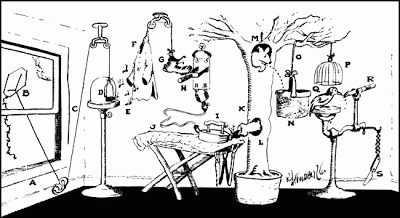[Published on Newmax]
The Republican Congress has a small window of opportunity to redefine the political landscape.
Will Republicans repeat history or make history?
Remember 2011? Republicans won an historic number of seats in 2010 only to become disappointingly ineffective. A thundering herd of elephants birthed mice.
Republicans will need to overcome several challenges.
First, most media will declare the “end of days” and breathlessly report the coming “Republican apocalypse” in detail. They will demonize every incoming Republican with cherry-picked “facts” and an endless array of fiction.
Second, Republicans will not be unified. They rarely are. Conservatives should remember that just because Members of Congress are “R”s they are not necessarily “ours”. There are moderate and liberal Republicans, along with swamp dwellers, timid souls, and special interest conflicted.
Republicans, even with a slim majority, can make a difference if they achieve four major goals: Expose; End; Equip; Endure.
EXPOSE
Congress has a fundamental duty to conduct oversight and hold those in power accountable.
This begins with Congress itself. Republican leaders must immediately demand that January 6, 2021, videos from all 1,800 Capitol Hill cameras are preserved. Any cameras “not working on that day”, and “lost" or “damaged” videos, must be fully explained and documented.
On January 6, 2023, Congress embraces transparency by releasing all January 6 videos from all cameras unedited or redacted. Let Americans see for themselves what happened.
To follow-up, Congress then identifies law enforcement shown on Capitol security and news videos helping protesters by unlocking and opening doors, removing security barriers, waving them to the Capitol, or standing-by passively. Each law enforcement officer should be individually brought behind closed doors and asked, under oath, “who told you to do that?”
Those who “were following orders’ will be asked, “whose orders?” Their superiors are brought forward and asked the same questions. Congressional Q&A continues until top law enforcement officials either assert they initiated rules of engagement themselves or identify orders from specifically named elected officials. These communications would then be released to the public.
There are countless Biden abominations that deserve investigation. Republicans must heed the lessons from their ineffectual pursuit of Obama scandals. Subpoenas will be ignored, documents will be withheld, slow walked, or become “missing”, witnesses will refuse to testify, lie, or obfuscate.
The gold standard remains the 1973 Watergate Committee. They began with the lowest level people and worked their way up to the top. Questions were asked and Members waited for answers instead of launching into finger waving monologues. Public hearings are theatrical events. Republicans need to manage the plot, characters, and answers beforehand and build a narrative. The truth is out there but is nearly impossible to uncover in a timely enough manner to matter.
Nonpartisan oversight should also occur, using hundreds of reports published by the Government Accountability Office (GAO) and the 72 Department and Agency Inspectors General. Americans need to repeatedly hear about the mindboggling expanse of waste, fraud, and abuse that is endemic in the Federal Government. This validates the next Republican President’s reform agenda.
END
Republicans will end new Biden initiatives and reduce his ability for mischief. They can defund programs, positions, and people. They can turn campaign promises into reality by introducing legislation addressing voter priorities.
Justification through hearings and legislation will reveal and debunk the underlying dogma that is driving the Biden agendas for climate change and wokism. Deindustrializing America is foundational to Biden’s assault on energy independence. Showcasing silenced experts on these matters is vital.
Biden will veto everything Republicans do, and they will not have the votes to override. Republicans can counter by thinking well ahead of these predictable moves. Biden vetoes will become opportunities to contrast Republican voter-endorsed solutions with how Biden’s policies destroy America. This builds the case for change in 2024.
EQUIP
Republicans used the last two years of President Jimmy Carter to pave the way for the Reagan Revolution. The next two years can equip the next Republican President with ideas and actions that will define the political landscape for 2024 and beyond. Through hearings, legislation, and floor speeches, they can build a mandate for the next Republican President to “hit the ground running”. This change agenda will generate Leftist attacks, providing insights for Republican counter measures when they are reintroduced in 2025.
ENDURE
The Washington, DC swamp is far deeper and extensive than anyone ever realized. Republicans who cannot be bought-off or scared-off will be relentlessly savaged. Democrats are known for locking arms and never breaking ranks. Republicans shoot their wounded, even ones with minor injuries. Time to think strategically and prepare for future battles
To save America we must think past one election, one hearing, or one piece of legislation.
It took years for the Left to gain the upper hand.
It will take years to end their reign.
Scot Faulkner served as Chief Administrative Officer of the U.S.
House of Representatives and helped lead Speaker Newt Gingrich's Congressional
Transition in 1994. He was Director of Personnel for the 1980 Reagan Campaign
and served on the Presidential Transition team.
He currently advises corporations on implementing strategic change.










